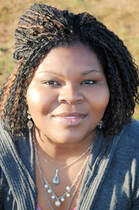|
On Friday, I chaperoned my son’s class on a field trip to an amusement park. The driver and I were the only two adults on the bus. As we were parking, the teacher, on a different bus, sent me a text of instructions to give the students. I stood up, braced against the seat, asked for everyone’s attention, and told them what do bring, what to leave on the bus, and how to line up for their tickets. As the students walked up the aisle, I checked them over to be sure they had each headed the instructions. The driver noticed from the side mirror that students had opened the emergency door and were hopping off from the back side door. I was furious. How dare they! I hopped off and walked around the bus to tell them (in a loud, angry voice) they had no business opening that door, that their behavior was unacceptable, that they need not be in such a rush. At that point, a day with middle schoolers in 90-degree weather, quickly lost its appeal. Earlier this week, I spoke with a teacher stressed about her students’ behavior. She said they slap each other, call one another names, refuse to do work, won’t walk in line. She said she had spoken with the students multiple times, but the occurrences had increased rather than decreased. She said that her school’s discipline system promotes the idea of natural consequences rather than the traditional consequences of isolation, detention, or missed recess. Natural consequences? I went to Google.
After I calmed down about the students using the emergency door to de-board the bus, I wondered what the natural consequences would have been. If they didn’t properly close the door, it could have swung open when we were on the interstate that afternoon, someone could have fallen out of the bus and been seriously injured. Should I have yelled at them or waited for the natural consequences to occur - what if the natural consequences didn’t occur, or what if they did occur, but the students failed to associate the consequence with their earlier actions? Was I wrong to have raised my voice at them? The Bible says, spare the rod, spoil the child (Proverbs 13:24). I didn’t have a rod, but if I had had one... I am not convinced that a classroom discipline system can be effective when based solely on natural consequences. To understand natural consequences, a clear relationship between cause and effect must be realized, even when are separated by a lengthy period of time. It requires a level of maturity that children and adolescents do not have. Their brains are not developed to the degree needed to make these associations. I think natural consequences need to be explained to students, so that as they grow, they will begin to think before they act. Once they can predict outcomes, they will make better choices. ~Hebrews 12:11 For the moment all discipline seems painful rather than pleasant, but later it yields the peaceful fruit of righteousness to those who have been trained by it. ~Proverbs 29:15 The rod and reproof give wisdom, but a child left to himself brings shame to his mother. ~Ephesians 6:4 Fathers, do not provoke your children to anger, but bring them up in the discipline and instruction of the Lord. ~2 Peter 3:9 The Lord is not slow to fulfill his promise as some count slowness, but is patient toward you, not wishing that any should perish, but that all should reach repentance. Of course there are more Scriptures about consequences and discipline, but these are a few that I particularly like. Discipline or consequences should not be pleasant. If they are, then they will not alter behavior. Discipline leads to self-control, which leads to peace and righteousness. Children who are not disciplined grow into adults who cannot make their parents proud. As we seek to discipline our children, we must work to ensure that our discipline is both logical and fair. Our consequences should be related to the offense. If a student cuts in line, the consequence might be that he must write an apology to those he cut. Another logical consequence might be that he must move the the back of the line. To impose a consequence that is too harsh, humiliating, or otherwise excessive will cause the child to become angry. If this happens, he is no longer thinking of or learning from what he did. He is, instead, thinking of what has happened to him. As we discipline our children, or teachers their students, we must offer some degree of grace. We must never forget that we, too, are imperfect beings. Just as the Lord is patient with us, we must be patient with our children. Amen! Thank you for reading! Please send this post to a parent or a teacher. Kim Copyright 2019 Kimberly Griffith Massey
6 Comments
Mom
5/26/2019 01:45:10 pm
Great blog! You may recall that we had seven Kenyan pastors visit our church and community several years ago. Two of them stayed in our home. I remember one evening I was talking with Pastor Harrison, who was partially blind, about how they disciple children. I was curious because I observed personally how disciplined they were when we visited Kenya and also when the African Children’s choir visited Sumter. He told me this, he said, “ we beat them and then we talk to them and tell them why they were beaten. After that you will have fewer problems and fewer beatings.” The children are given immediate consequences and not left to discover them on their own. Consequently they have adults who live very disciplined lives, even though very meager and sometimes very, very poor! But they know to honor God and honor and respect their parents.
Reply
Mary
5/26/2019 05:54:07 pm
That is the truth Mom. I went to Rwanda several years in a row. The first year we went we noticed the teacher had total control over a classroom. In a dirt floor church with no electricity sitting on rickety benches shoulder to shoulder about 4yrs to age 10. There were about 200+kids crammed into that room. If we Americans got the noise level up the teacher picked up a stick and raised it above his head and walked down the middle of the room saying nothing at all. Dead silence. He said he very seldom had to use it. The children respected him and as they left each day they gave him a hug.
Reply
Kim
5/27/2019 12:25:10 am
How did you get to go to Rwanda? Was this a mission trip? If this is something still occurring, I would like more information.
Kim
5/27/2019 12:17:16 am
Wow, beat 'em! I can recall Zach having temper tantrums and I would pick him up and set him on the mat outside the house in the garage kicking and screaming. I would tell him that when he was finished he was welcome back inside, but not while he was acting out. The door to the house was unlocked, so he could come in whenever he wanted to but I was not going to be an audience for his show. His dad would be furious with me for doing that to him. I told him, "look, I am preventing child abuse." Zach is now a very well-behaved young man. He and I have ver civil conversations. He is free to express himself to me and we get along very well! I wouldn't be an observer to his shenanigans.
Reply
Mary
5/26/2019 05:47:33 pm
Kimberly. This is perfect. The behavior that is acceptable in a classroom is unbelievable. Teachers have too much on their plates. You are like me. I expect children to obey adults who are in their lives. When my kids were young I told them if a treatment from a teacher wasn’t fair just accept the consequences and we would discuss it at home. But their job was to obey and be respectful.
Reply
Kim
5/27/2019 12:23:21 am
Yes, our teachers have an uphill battle. So many kids come with no discipline, then parents get upset when a little discipline is applied. Did you see the news story about the bus driver who refused to turn on the AC or allow the students to put the bus windows down because they were too loud? She said, "you're gonna burn up until you shut up." This became a new story because the parents were in an uproar about this harsh treatment. I didn't even know AC had been added to school buses, we were always hot and it wasn't punishment, it was a way of life.
Reply
Leave a Reply. |
I am a wife, mother, educator, and author who, between other duties, enjoys writing. My name is actually Kimberly Griffith Massey. In this blog, I will share some sighting of God's light each week.
Author Photo by Heather G. Rollings, 2017 Cover photo by Carlton Griffith Photography www.carltongriffith.com Archives
December 2019
|
All rights reserved. Copyright 2024 Human Terms Publishing & Educational Services, LLC
Proudly powered by Weebly




 RSS Feed
RSS Feed


